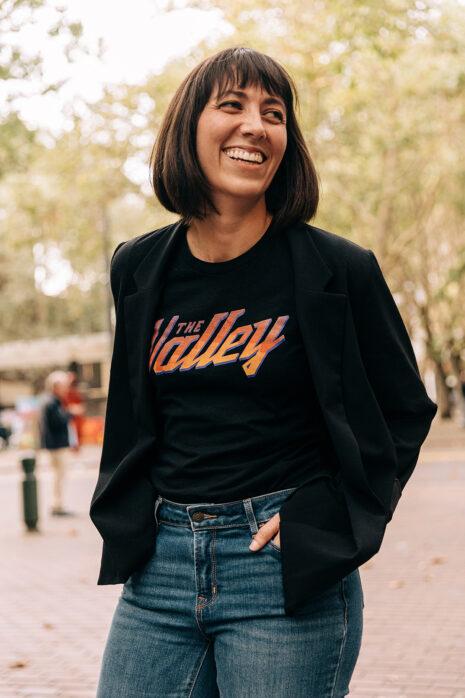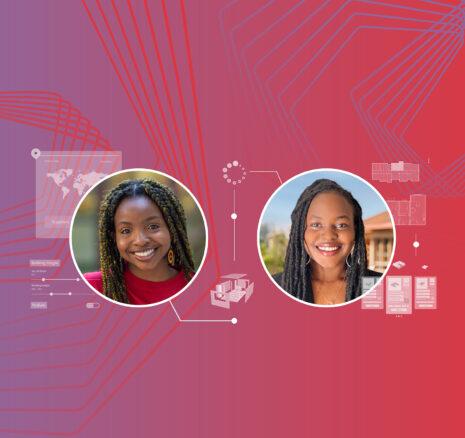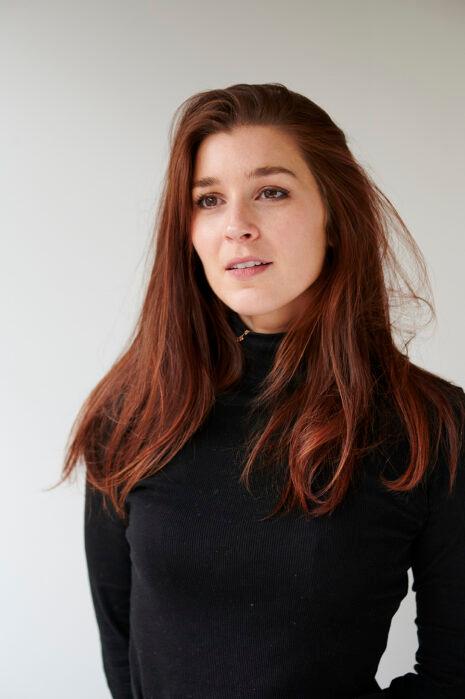Tim, what are your priorities as Global Head of People & Performance?
My overall objective is to develop systems and strategies that will enable Modulous to build and retain a world-class team, so that we can deliver on our mission and vision. My role exists so that we can create a high performing workplace that is both professionally and personally fulfilling.
Along with our CEO, Chris Bone, and our Business Manager, Nikki Page, we are the engine room that supports our people to deliver their best work every day. In addition, I’m the wellbeing champion in that I have been trained in breath work, yoga, meditation, and coaching, so I bring the science of those disciplines into the business for our physical and mental wellbeing.
What is the scope of the People and Performance team?
Modulous thinks about People & Performance differently to many other firms. We decided against building a traditional HR team, and instead we work with external HR partners to extend our HR capabilities with specialist support. My primary focus is strategic, focusing on the employee experience, and building the right culture of performance at Modulous.
We are translating our values into everything that we do – our internal technology platforms, our policies, procedures, and systems, and our JEDI strategy (justice, equity, diversity, and inclusion). As a team we are focused on our vision to build and retain a world class team who love the work they do. Much of our day to day activity is focused on creating pools of exceptional talent, recruiting people into the business, developing their skills and capabilities, and helping them build an exciting and rewarding career.
How did you get started in this field?
My background is non-traditional in the HR sense. I didn’t complete my double degree in Commerce (HR) and Science after high school, and instead I completed an MBA a decade later while living overseas. I spent 20 years in complex sales where navigating ambiguity, creating solutions for some of the world’s most challenging problems and working across organisations was the norm. I spent the first 10 years in recruitment and HR consulting, followed by another 10 years in a mix of industries including logistics and supply chain, security services, and management consultancy. In the latter decade, I was building multidisciplinary, multi-national sales functions and creating new teams, and it was in these years that I became hyper-passionate about helping people to perform better.
My MBA was focused on certification programs in a learning and development context – helping an organisation to work out which certification system would deliver the best ROI for their business. More recently, I studied coaching, and I began speaking at conferences and writing articles on leadership and building high-performance teams. It was during this transition out of sales that I met Chris Bone, who was building a new business, Modulous. I immediately knew that I wanted to be part of it, but I wanted to be in the people and performance space (rather than business development), drawing on all the dimensions of what I’ve done before, what I’d seen before and what I’d studied.
What inspires you professionally?
I’m inspired by impact – not just about the impact we make as a business, but our impact on society. Modulous is about tech for good, meaning we are building technology that’s doing good in the world. We are creating a platform that is going to lead to a more sustainable outcome for the creation of new homes, moving towards carbon neutrality, and building affordable homes for people who desperately need them.
But it’s also about the people who work here, and how we impact each other as human beings. When I was leading teams, I saw the change that was possible when team members knew that somebody else believed in them and what they could achieve at work. You could see people shift when you acknowledged them for who they were, the skills they had, the impact they were making at work. Helping people see new possibilities for their career and watching them work towards their goals was especially motivating for me as a leader. I moved into this role so that I can create a positive impact at an organisation level, rather than just a team level, and I have a big ambition for what we can create and what we can achieve at Modulous.
How would you describe the culture that you all are building at Modulous?
We’re building what we believe is the workplace for today and for the future, where people are treated with respect, trust, and fairness. We walk the talk on these principles by offering an uncapped leave allowance to give team members the time they need for rest and recharge; we’ve removed the concept of a probation or initial period of employment so that team members feel that they are a permanent part of our team from day one; we provide a range of lifestyle benefits including life assurance that offers a range of whole-person wellbeing benefits; and we focus on the delivery of objectives as a hallmark of success rather than face-time and presenteeism.
We’ve brought together a group of smart people who are committed to changing the entire value chain in construction through technology, and we’re doing the same with our People & Performance team. We’re experimenting, learning from iterating, and keeping it going at a rapid pace.
Growing this business during the pandemic meant that we had to find creative ways to keep people connected and engaged. Our focus on connection, engagement, and wellbeing has gone beyond the pandemic and become a part of our hybrid way of working. Although we deliver results at a fast pace, we also know when to slow down — cook together, go to a quiz night, take a collective walk, or have a drink. So we’ve translated our culture into this new world, and the result of that is a group of people who are more self-reliant, more resilient and empathetic.
Ultimately, our goal is to create a business where people want to work and feel fulfilled. Our ethos extends to how we treat our colleagues in the industry, our customers, and our end-users. We’re creating a model where our suppliers become our partners, and we want customers and end-users to be surprised and delighted with the products that we’re offering. It’s not possible to create those kinds of outcomes without having that sense of partnership in our own organisation, without surprising and delighting our own teams first.
How would you describe Modulous’ approach to employee wellbeing?
Wellbeing has always been part of Modulous, but it moved to the forefront when the COVID-19 emerged. We were still a very small organisation of around 11 employees when the pandemic struck and we were put in a situation where everything that we knew about how we worked was suddenly turned upside down.
I shifted from contract to full-time employee in June 2020 to support Modulous to become BOPAS certified, and at the same time I was leading breath work and meditation sessions to help people dial down the stress and anxiety they were feeling around the pandemic. We organised our activities around three pillars – the mental, physical, and purposeful dimensions of wellbeing.
We had a weekly walking challenge on Wellbeing Wednesdays where we encouraged team members to go for walks, count their steps, and add them to a shared map that virtually tracked our progress around the world. In another session we listened to a podcast about Imposter Syndrome and created a safe space for people to share their own experiences with it. It’s an interesting space to be in when you’ve got people who are willing to be vulnerable in front of each other, even at senior levels.
For the breath work, I’ve explained the science of respiration and helped people tune into their own natural way of breathing, and to figure out whether they’re breathing in a way that’s going to help them to maximise their health. What we find is if people are hunched over at their desks, they often can’t breathe properly. They are activating their sympathetic nervous system and creating low-grade physical stress without even realising it. On a Wellbeing Wednesday we will sometimes spend five or ten minutes doing deep diaphragmatic, rhythmic breathing.
Few of us has been taught that we can control our breathing, or that we can change our state with breath. So it really helps people for stressful meetings or stressful conversations. They can do a few minutes of deep diaphragmatic breathing in a certain cadence, and we know that it’s going to activate their parasympathetic nervous system and make them more relaxed.
How is Modulous’ culture being shaped by the social justice movements in the U.S. and elsewhere?
As a global company we are building our people and performance programs with diversity, equity and inclusion foremost in mind. We are progressive and proactive in how we recruit, and we are actively looking for new ways to increase diversity in all dimensions. Through intentional hiring practices we’ve already brought together a group that is diverse in terms of disability, gender, identity, race, and professional backgrounds, and we’re looking at ways to further increase diversity across our teams.
Part of our approach is to find people who weren’t previously in construction, but who align to our values, and have transferrable skills that can make a significant impact on the change we’re creating.
Have you seen value in bringing in people from outside the construction industry?
Yes, there’s a lot of value in that, as mentioned already. To create the type of disruption we are aiming for, we recognise the value of transferrable skills and experiences in other industries. We have deep experience in the Architecture, Engineering and Construction (AEC) already, and we’re also drawing talent from manufacturing, FMCG and technology, which helps us gain new perspectives and to iterate faster and differently than we might have if we were focused only on AEC candidates. We’ve tended to focus on candidates who are genuinely enthusiastic about Modulous and our mission, who align to our core values , have the transferrable skills we need, and who want to be a part of the impact we’re determined to make in the world.
Amid the pandemic and the shift to hybrid and remote work, what are some best practices for culture building?
After the past year I feel like an expert on dealing with impossible situations. I joined Modulous as permanent employee number 12 in June 2020. In the past 18 months we have grown 3X to nearly 40 people, and we’re about to do it all over again. What the pandemic has taught us is the value of flexibility, resilience, and connection. We made hybrid working a supportive, stimulating and fun experience in spite of what was happening around us.
Some best practices that have supported us are:
1. Empower team members to make a choice about what works best for them to deliver the best results. We set objectives and outcomes, but we ask the teams to work out how they do that, and what way of working is going to deliver that for them. Our teams have to think and act more purposefully about work and the best place to do it, whether that’s in the office, at home, or a combination of the two.
2. We’ve made a conscious effort to connect socially through cooking nights, virtual and in person social events, and a regular cycle of weekly check-ins that are a combination of all company updates as well as small group and one to one coffee breaks.
3. We have many different cultural touchpoints that help us decompress. For example:
-
Wellbeing Wednesdays brings us together to focus on physical, emotional and mental wellbeing. These sessions have included breathwork, static movement, chair yoga, meditation, and discussions on a broad range of performance related topics.
-
“My Life as a Mixtape” is a weekly sharing of Mixtapes by team members, which enables us to learn more about our colleagues through music.
-
Feel Good Fridays brings people together for a lunch time run, office lunch and after work social drinks.
-
Another channel encourages people to share their latest run, or cycling stats, or their latest sporting achievement – whatever it is that they’re working on – the group is there to cheer them on virtually. Some of our team members have raised money for charity through fun runs and marathons.
-
A monthly in person social invites the team to come together at our Hub for snacks, drinks and social chat.
We encourage people to do physical exercise because we recognise the link between physical movement and overall wellbeing. If we can keep people moving, it dials down the stress and anxiety responses. By keeping everyone connected and armed with new skills, we’ve helped to increases people’s resilience. These are things that have worked for us to create a cohesive and high performing team during unprecedented change.
Throughout your career, what projects have made you particularly proud?
A while back I moved to the Middle East to start a new job, which was to build a centre of excellence in business development for a logistics company. I effectively had nothing — just a desk, a chair, and a box of documents. There was no formalised process and no team, just me and one other. By the time I left, I had created a high-performing team that a lot of others in the organisation wanted to join, because I helped my team members grow professionally and personally through mentoring, training and coaching. I focused on individuals as whole people rather than just focusing on the work bit and that helped us deliver better results for the company. .
Outside of work I would run into my co-workers’ family members and they would say to me, “I just want to thank you for how you helped my partner at work.” I would get goosebumps hearing that, because it all goes back to what I said earlier about impact — I enjoy building something that has a meaningful impact on people’s lives, including on the lives of our team and their families.
Years later I have watched their careers continue to grow. These are people who hadn’t initially been given the opportunities to develop new skills or chart a formalised career, and their experience on this team helped them forge an entirely new career path in the kind of work that they loved to do.
What advice would you have for young people coming into this industry?
Young people need to know that the construction, real estate and architecture industry is changing, because I think some tend to perceive the AEC sector as being fairly static and staid. But technology is now changing this sector at an exponential pace as more companies explore how digital services can help to influence what we do in the built environment. Governments and the private sector are pushing toward a net zero carbon future, and we need to develop the digital and physical technologies that will help us to get there. I believe that materials technology, digital technology and manufacturing will become much more influential in the real estate industry of the future.
If young people have a passion for the built environment, for sustainability, and for making a positive impact in the world, they have even more opportunities than ever to make that happen through a range of new and emerging disciplines that weren’t previously seen in the real estate sectors.



